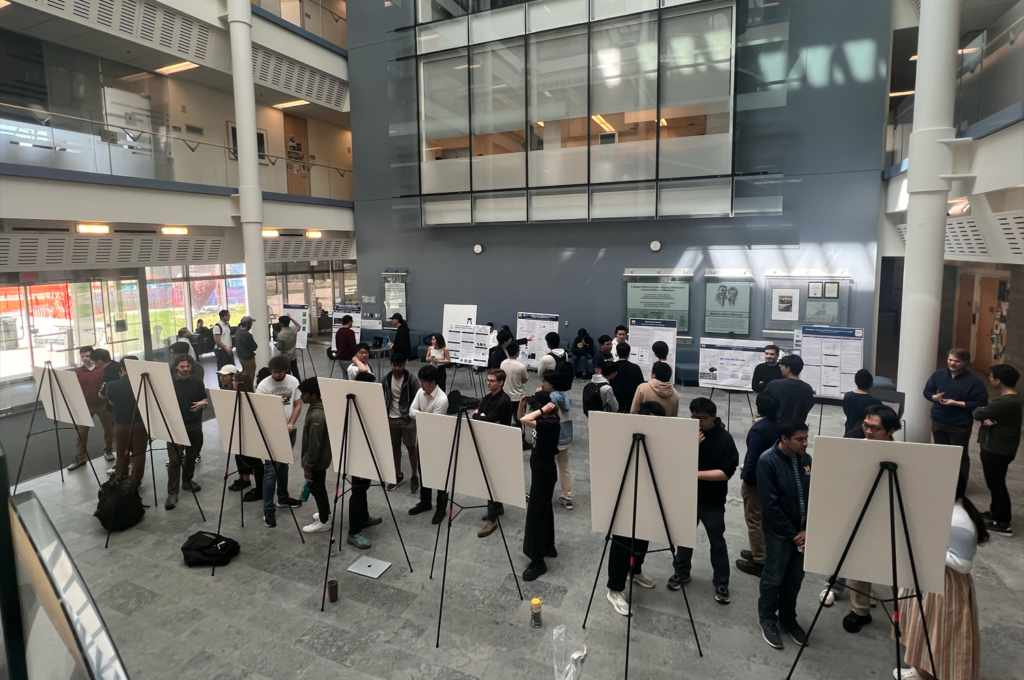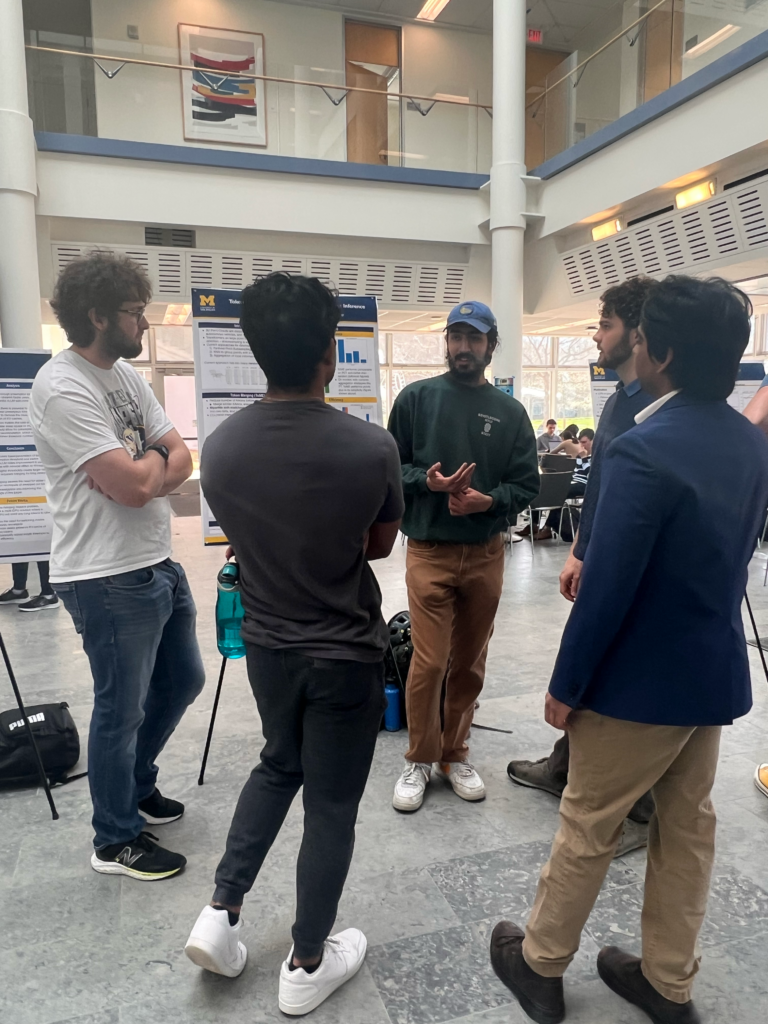Poster session showcases student-developed GenAI software systems

Generative AI (GenAI) has made exponential leaps in recent years, introducing unprecedented opportunities for technical innovation and creativity. This rapid growth has placed tremendous strain on datacenters and other computational resources, creating a need for new techniques, algorithms, and software to streamline and enhance GenAI applications. One course at U-M, EECS 598: Systems for GenAI, challenges students to come up with new software systems to support more efficient, scalable GenAI, adding to the growing arsenal of tools powering the latest AI applications.
The course, taught by Prof. Mosharaf Chowdhury with assistance from Graduate Student Instructor Jiachen Liu, offers a deep dive into GenAI, giving students insight into the inner workings of modern AI applications. Through reading, coursework, and hands-on system building, the class introduces students to key concepts and techniques in the development of efficient, scalable, and fault-tolerant software systems for GenAI. As part of this, they are tasked with imagining and building their own tools to enhance existing AI applications and/or open up avenues for new AI methods.
The Spring 2024 iteration of the course closed with a poster session on Thursday, April 18, where students shared the GenAI systems they developed. A total of 37 graduate students from CSE and other disciplines, including Mechanical Engineering, Electrical and Computer Engineering, and Statistics, participated in this semester’s course. Students formed two- to three-person teams and built their solutions from scratch, their efforts resulting in over a dozen new systems that improve the scalability, efficiency, and resilience of GenAI.

From software that detects silent bugs in machine learning training, to a program that enhances memory management for large language models (LLMs), to an infrared prediction model that enables more accurate weather forecasting, students built a variety of innovative tools that showcase the potential for software systems to revolutionize GenAI.
The projects presented include the following:
- Winograd Neural Operators
- Mordal: An Efficient Multimodal Model Search System
- vLLM Iteration-Level Optimizations
- DataMask: Human-in-the-loop PII Anonymization for LLMs
- Quantizing Mamba
- Efficient and Precise Self-Memory for Retrieval-Augmented Text Generation
- Augmented-Reality-Based Interactive System for Task Completion
- ML-Daikon: Fighting Silent Bugs in Machine Learning Training Pipelines
- Diffuserve: Serving Diffusion Models Efficiently with Iteration-level Scheduling
- AI-Enabled Infrared Radiance Prediction for Weather Forecast
- Efficient Serving of Large-scale Vector Search with Sharded Indexes
- UVM is all you need: Seamless Memory Management for LLMs
- Ditto: Automating Large Model Partition for Distributed Training on Heterogeneous Cluster
- Token Merging for Efficient Point Transformer Inference
“I was so impressed with the quality and inventiveness of the students’ projects,” said Chowdhury. “Their work gave rise to some truly forward-thinking programs that enhance the performance and reliability of GenAI applications in real, substantive ways.”
The course will be offered again in Fall 2024 under its permanent course number CSE 585: Advanced Scalable Systems.